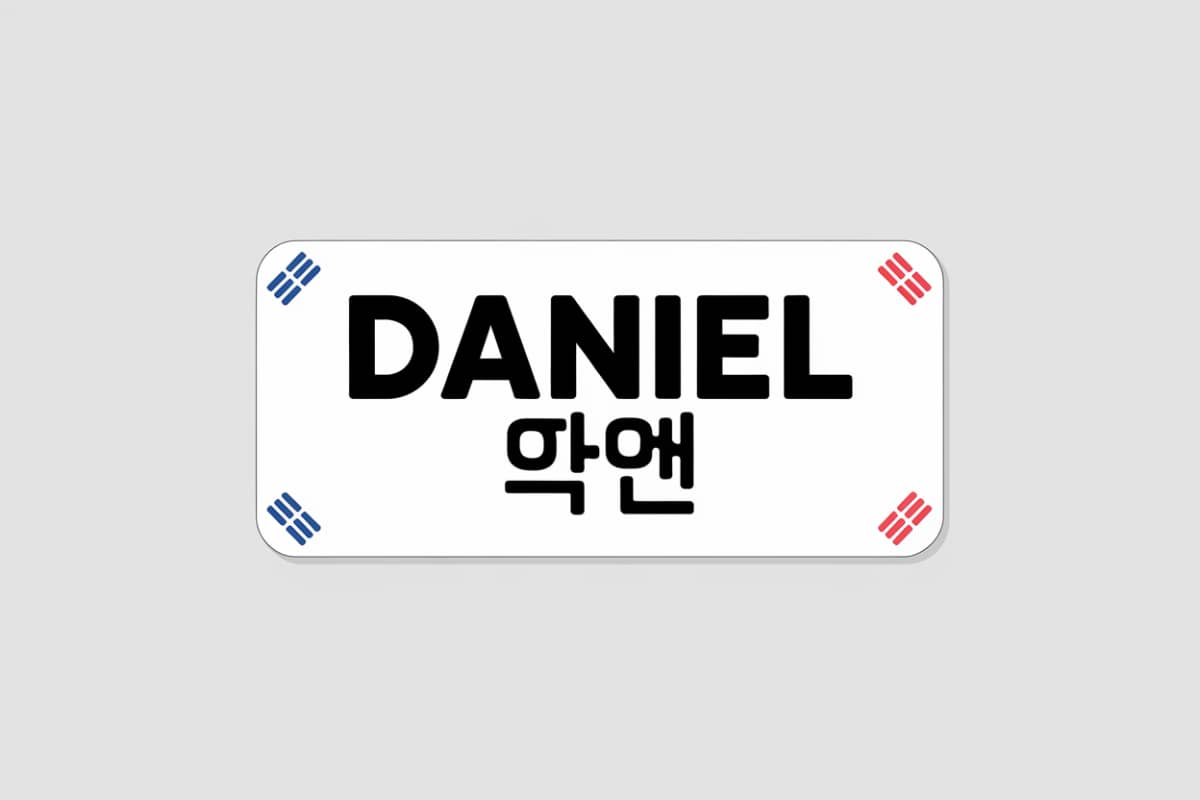Korean Name Converter to Translate from English to Korean
This Korean Name Converter translates any name from English to Korean. Our generator tool includes first, middle, and surnames.
Korean version:
김민수 (Kim Min-soo)
kim min-soo
민수야 (Min-soo-ya), 수수 (Soo-soo)
How it works
Our Korean Name Converter uses a large language model to translate names between English and Korean, accounting for proper character selection, pronunciation, and cultural considerations.
The tool provides both Hangul and romanized versions using the Revised Romanization system, helping users understand the written and spoken forms of their translated names.
Korean Naming Conventions
Traditional Korean names typically follow a specific structure:
- Family name (성 seong) – usually one syllable
- Given name (이름 ireum) – usually two syllables
- Generational name element (항렬자 hangnyeolja) – optional, traditionally used within extended families
Korean names can be written in both Hangul (한글) and Hanja (한자, Chinese characters), though Hangul is most common today. The selection of Hanja characters for names traditionally considers meaning, stroke count, and generational order within families.
Cultural context and history
Korean naming traditions have been influenced by Confucian principles and Chinese culture while maintaining distinct characteristics. Historically, Korean nobility used generation names to indicate family relationships and lineage. Unlike many cultures, Korea has a relatively small number of family names, with Kim (김), Lee (이), and Park (박) being the most common.
Modern significance
Today, Korean naming practices blend traditional elements with contemporary preferences. While parents still carefully consider character meanings and pronunciation harmony, there’s increasing creativity in given names. Understanding Korean name conventions is particularly valuable for international business, legal documentation, and cultural integration, especially given the importance of proper name order and honorific usage.

Nicknames & diminutives guide
Korean nicknames often follow specific patterns:
- Adding -이/이 (-i/yi) as a diminutive suffix
- Using friendly titles like 오빠 (oppa) or 언니 (eonni)
- Shortening names to the first syllable
- Adding 양/군 (yang/gun) for young people
- Creating playful variations based on personality traits
